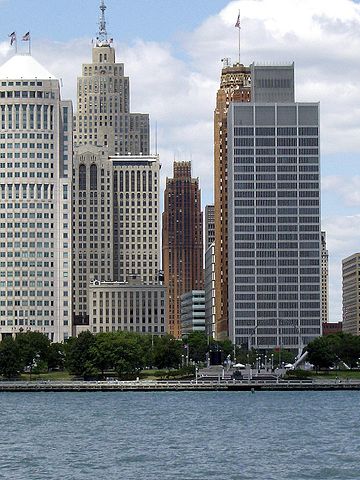Judge Steven Rhodes approved Detroit’s bankruptcy plan last week. But he used the moment to re-iterate that Detroit isn’t out of the water yet.
One thing in particular worries Judge Rhodes, who said his “greatest concern…arises from the risks that the city retains relating to pension funding.”
Retirees have accepted benefit cuts, but pension problems still linger. Among them: Detroit’s unwillingness to make full payments to its pension systems. From the New York Times:
Documents filed with his court show that Detroit plans to continue its past practice of making undersize pension contributions in the near term while promising to ramp them up in the future. This approach is by no means unusual; many other cities and states do it, on the advice of their actuaries. Detroit’s pension fund for general city workers, now said to be 74 percent funded, is scheduled to go into a controlled decline to just 65 percent by 2043; the police and firefighters’ fund will slide to 78 percent from 87 percent. After that, the city’s contributions are scheduled to come roaring back, bringing the plan up to 100 percent funding by 2053.
This will work, of course, as long as the city has recovered sufficiently by then. The state’s contribution to the grand bargain lasts until 2023, with the foundations and the art museum continuing to kick in until 2033. Eventually the payouts will begin to shrink some as current retirees fall off the rolls. Active workers have already shifted to a hybrid pension plan, and they will start to bear most of the new plan’s investment risk. But the city faces decades of payments for retirees under the old plan.
“The city has the potential to be saddled with an underfunded pension plan,” warned Martha E.M. Kopacz, the independent fiscal expert Judge Rhodes hired to help him determine whether Detroit’s exit strategy was feasible.
Ms. Kopacz, a senior managing director with Phoenix Management Services, did find it feasible, but expressed many reservations, especially about pensions.
“The city must be continually mindful that a root cause of the financial troubles it now experiences is the failure to properly address future pension obligations,” she said in her report. Judge Rhodes said on Friday that he agreed.
Despite benefit cuts, the city’s pension costs are still high. Since the city isn’t paying full contributions, even more pressure will be put on investment returns to cover costs. From the Times:
Even after the benefit cuts, the city’s 32,000 current and future retirees are entitled to pensions worth more than $500 million a year — more than twice the city’s annual municipal income-tax receipts in recent years. Contributions to the system will not be nearly enough to cover these payouts, so success depends on strong, consistent investment returns, averaging at least 6.75 percent a year for the next 10 years. Any shortfall will have to ultimately be covered by the taxpayers.
Judge Rhodes’ full opinion can be read here.
